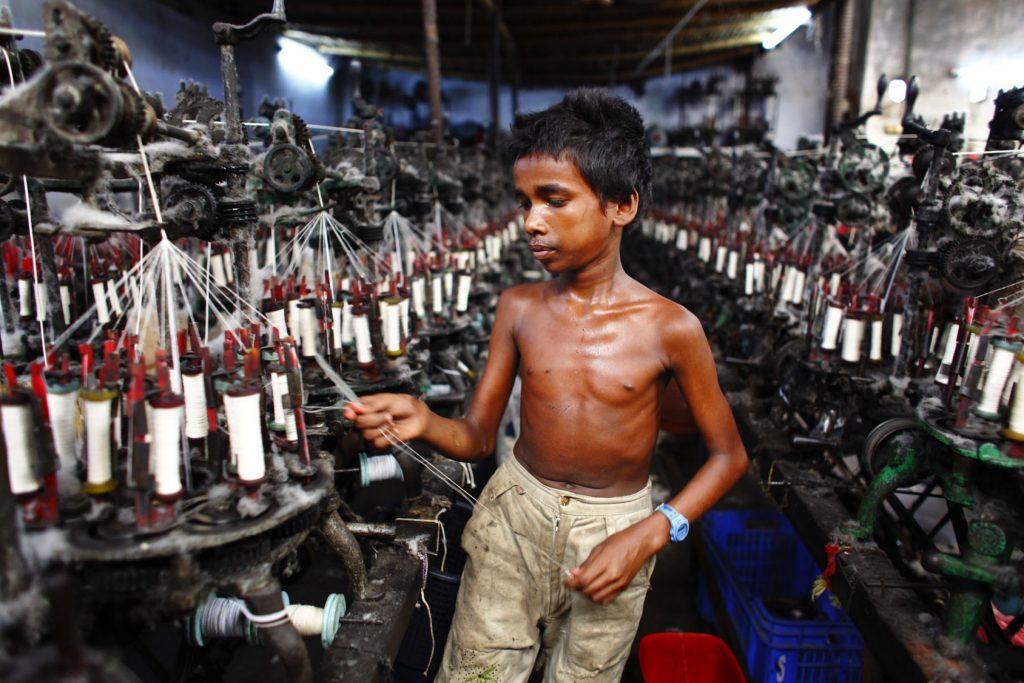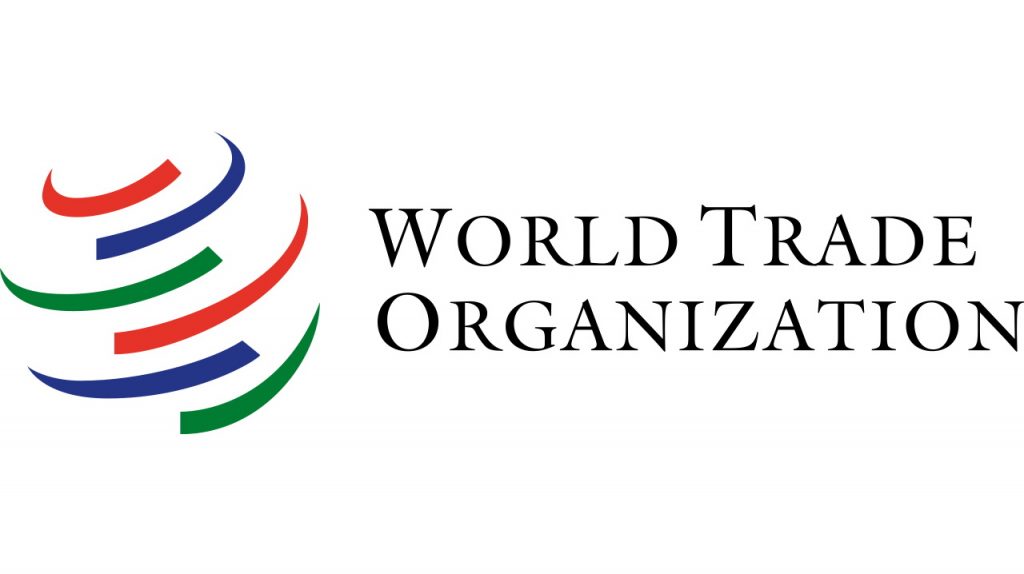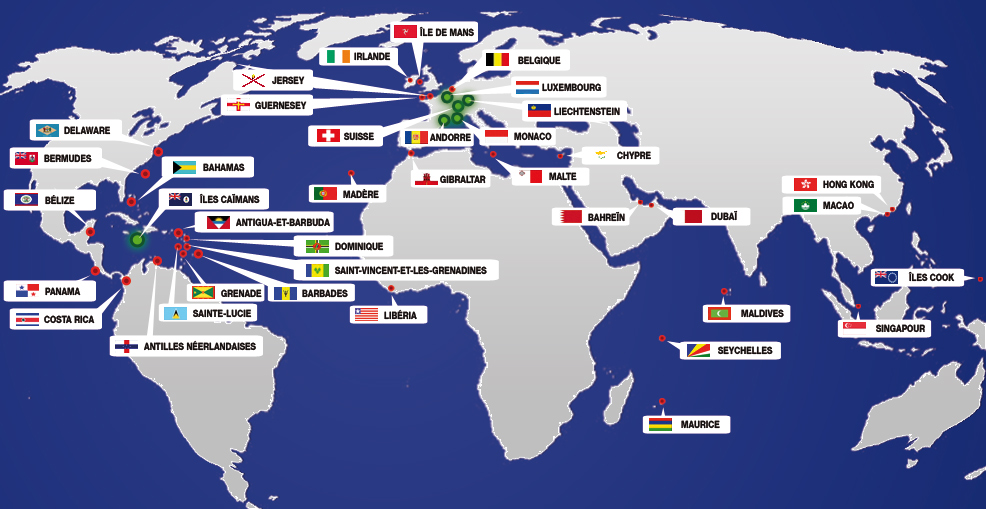Luc Brunet – 13 March 2023
As you could read in previous articles, I several times wrote on the evolution of manufacturing/producing capitalism towards financial capitalism. I also wrote a lot about globalisation.
Here I would just discuss how this trend took place and what were the real reasons behind the massive off-shore outsourcing of major industries from the west to Asia, and mostly to China. The theme is of course enormous and I shall have to make it more simple and may be use simplistic explanations to make things shorter and simpler. But all in all we shall try to give an overall picture making things clearer, and giving hints about why we ended up in the present situation of conflict and economic crisis.
For the ones who followed economic developments in the 70’s and 80’s in Europe of the US, you may remember the evening news on TV, when journalists explained that such and such manufacturing plant was closing down to be replaced by a new factory in Asia. You may also remember the list of “economic” reasons why it had to happen:
Lower labor cost
This was clearly the case in the 80s or 90s, if compared to the cost of labor in Europe or the US. However, mentioning a lower labor cost is a really partial information. In reality, this meant much more:
- employment of people without any social insurance nor retirement plans
- employment of under-aged children
- long working days almost without breaks
- unsafe working environment
- no unemployment guarantees
- of course, low wages, even if they were quite high compared to small local jobs in Asia
Of course the above allows for a big reduction in labor cost, but clearly at the cost of local populations!

Access to local natural resources
This argument was also used, as the transport of raw products to the factories in Europe or US could be avoided. The cost of transport of finished goods was however partially reducing that advantage.
World-wide distribution of activities
On that point, the argument was mainly that manufacturing would be made in other regions, while more service jobs (the jobs for educated people) would be created in the west. In other words, dirty and polluting activities would take place in one part of the world, while westerners would enjoy air-conditioned offices and well paid service jobs. Of course nobody at that time explained what would be the actual “service jobs” of future employees of Amazon or Uber!
Prices would decrease to the benefit of the western consumers
This is on my views the funniest argument used at that time. Again for the ones old enough to remember the 70’s to the 90’s, who can remember a significant decrease in consumer prices? May be some rubbish products have been put on the market, but overall, prices did not decrease because of off-shore outsourcing. The low cost products from Asia were generally mocked on a quite dishonest manner. Accusing China to produce low quality or dangerous products is basically a lie, as most products sold under major western brands were manufactured under the specification and the budget provided by those brands. If a toy manufacturer provided a low budget, the result was rubbish toys. Good budget, strict specifications and good quality control resulted in good products. Apple produced for decades top quality and highly priced quality consumer electronics products in China. Mattel and the scandal with toys in 2007 is the opposite, with an obvious lack of quality control. By the way, Apple is not the best example of lower prices after off-shore outsourcing, is it?
Let’s stop at this stage. The reasons above that were given as obvious grounds to move production sites from US and Europe to Asia are not making sense. Why would companies spend money and take risks to move production far from home? May be other reasons exist that were not discussed in the open?
In fact there is a major reason: money!
To understand, you need to look at the complete picture of the flow of goods and money. Here we go:
A company in the US or Europe producing at home has to pay salaries, social protection (mostly in Europe), rental or purchase of buildings, and finally taxes on profit, that vary a lot between countries, but is in general quite high. All the business process from production to sales being under the jurisdiction of the local authorities, all taxes, social costs, etc are transparent to those authorities and have to be paid in full. Until the liberalization of trade and finance, and until the creation of fast communication tools and cheap transportation in containers, such a company did not have any alternative. It had to compete against other companies, almost all locally producing as well, and profits were mostly at the same level for all competitors. The only way to get out of the pack was better and/or cheaper products, but differences were marginal.
When commerce and finance were liberalized, initially under the guidance of the GATT, later of the WTO, moving the production site to let’s say China became possible. And the perspective was very attracting.
China being the best candidate for outsourcing, due to cheap labor, large availability of workers, easy access commercial ports, the US government, pushed by its industrial conglomerates, pushed for a rapid inclusion of China in the WTO, despite the ideological differences. Although many criteria were not met, China also got the status of most favored nation by the US in 2001, after joining the WTO.

Of course the US industry was hoping to turn the enormous mass of consumers in China into future customers, but before all, I think they understood that moving production to China would make them very very rich. They were right, and this is why.
First the lower cost of labor (without social costs) and the lower real-estate costs would allow to increase benefits. Of course some transport costs would be added to get the goods on the shelves in the US or Europe, but this was largely compensated by the lower labor cost, at least during the first decades of operation. But another factor is also key in that scheme: taxes.
Using the tolerated fiscal paradises and the legal tricks using (voluntary?) holes in the fiscal legislation, enormous economies can be done on taxes. Such tricks are not possible again when production and final sales are in the same fiscal jurisdiction, but become possible with off-shore outsourcing. The principle is indeed simple, even if the actual implementation requires solid fiscal and legal expertise: you create at least one affiliated company in a fiscal paradise with no or very small tax rate on profits. You sell from your China company at zero profit to that company in the fiscal paradise, then resell again to your sales company in the US and leave all the margin in that tax heaven, thus paying almost zero taxes. Then the sales company sells to final customers or distributors in the US with minimal profit, thus again paying minimal taxes.

The chain of products and money flows can bring a very large increase in margins, as the related savings are not transfered to customers (prices always increased over those many years), but end-up in the bottom line profits for the corporation.
We are talking here about enormous amounts of money that end-up in the pockets of shareholders, and looking at the scheme above, this money is indeed taken from the US or European workers, and from state tax revenues that get considerably reduced.
Comparable schemes were afterwards used in the service industry as well, and you may remember the ridiculous low taxes paid by Starbucks in UK and the EU.
Such money is really big and explains the efforts by oligarchs in the west to glorify the globalization trends over the past decades, making it a sort of religion or ideology that could not be denied or criticized.
The same efforts have been deployed to monitor the ecological discussion about climate changes, pointing fingers on individuals using petrol cars or overheating their flat, when the largest source of pollution is by far coming from sea transport, the direct result of off-shore outsourcing!
Finally, an important negative impact on western real economies, not much discussed in the mainstream media, is the impact on smaller companies (SMB’s) that did not have the possibility to use such tax evasion schemes, and thus lost competitiveness. In Europe, the only country that could resist that trend and keep competitive was Germany, based on a solid industrial heritage and cheap energy imported from Russia. This is now however no longer the case, as Germany was forced to join anti-Russian sanctions in 2022. China still benefiting from that cheap energy, the result on the German economy is easy to understand.
Where are we now?
It is no secret that the US, and even more Europe (at the exception of Germany) have largely de-industrialized their economy over the past 30 years or so. Instead, western GNP is largely based on services of all kind, with of course a large Financial sector. On the other side, countries like China, but also now other Asian countries like Vietnam or Thailand are major centers for the manufacturing of all types of goods. The system can work that way, to the benefit of the international oligarchs, but something is mandatory for its survival: a stable international trade and financial environment that in no way opposes the interest of the global oligarchy.
This is where the problem started, and it started indeed in the years 2000. Russia was supposed to complement the overall global business architecture, providing natural resources to make the world manufacturing engine turn smoothly, of course at the benefit of large US and European energy companies. Such a plan started to fail with the new sovereign policy developed by Vladimir Putin, who became the main game spoiler. China, probably feeling comforted by the position of Russia started to refuse to play the role of workshop fulfilling orders from US corporations, and also developed a more sovereign ideology.
Both Russia and China are the major and deadly failures of globalism. Growth without cheap Russian energy is impossible and technological domination is now eroded by the Chinese.
Globalists thought that capitalism would change China and Russia.
Instead, China and Russia changed capitalism!
All this lead us to the present deep conflict between the globalists and sovereign countries, as discussed in several of my articles.
What next?
The globalist west is confronted to a terrible perspective. The world organization on which it was building its success and its future is collapsing, with both Russia and China refusing to be servants in the game. The west is now in a dead-end for a number of reasons:
- imposing its will by force is very risky and can lead to mutual annihilation
- working in the terms proposed by Russia and China is too much of a humiliation for people used to be the masters of the world for 500 years
- returning to a non global production scheme is a nightmare for the west. The best in class working skills of the US that created some of the best technologies after WW2 are now gone, as large parts of the population have lost working skills and discipline. Recreating that production environment shall take one or two generations and fully robot based production is too limited and expensive
- the same is happening in the R&D area, with a growing number of patents now published in Asia, and no longer in the west. The idiotic anti-chinese policies in the US are making the trend even worst, with more Chinese students or engineers going back home. The high-tech leadership that was maintained by the west is now also being lost, and the situation shall not get better.
The west shall now have to decide if it agrees to play under new rules, not as a servant, but also no longer as a master, or prefers to play nuclear roulette. As far as western elites are concerned, the roulette is the most probable option.
Now, only western populations have the key to a better future, if they manage to initiate radical regime changes in their countries. But they should not wait too long!
